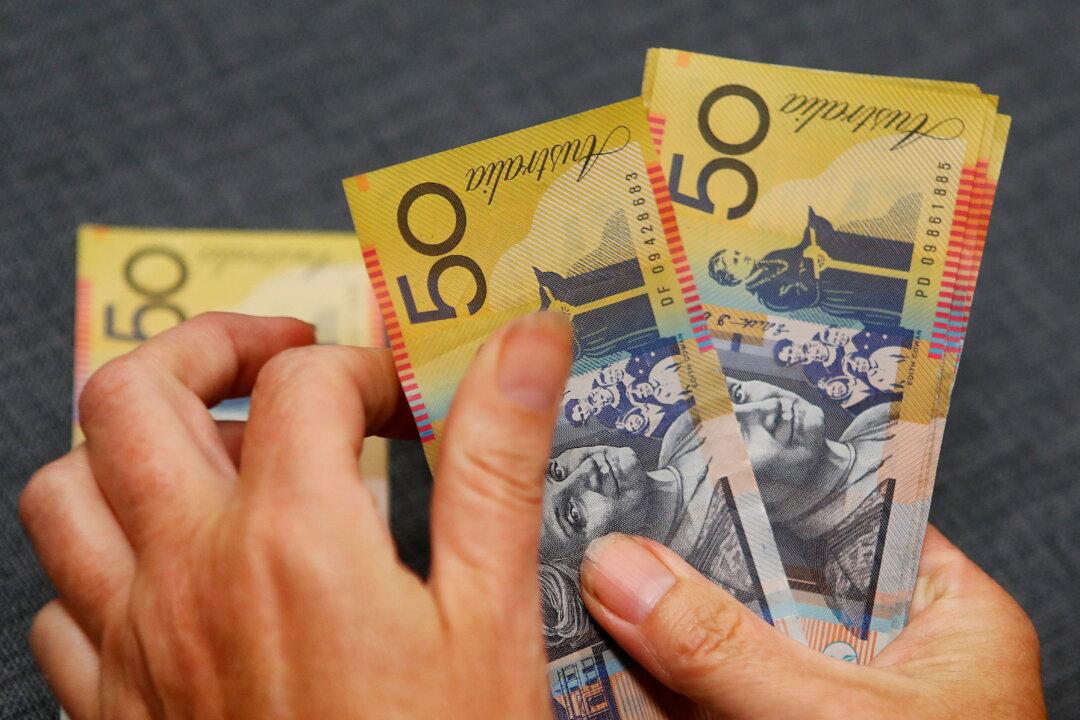SINGAPORE/TOKYO/HONG KONG—The safe-haven U.S. dollar hit a one-week high on Tuesday after weak global economic data, particularly in China, reignited global recession fears and weighed on risk-friendly currencies like the Australian dollar.
The dollar index, which measures the greenback against six major peers, hit a peak of 106.81 in early European trading, regaining all its losses from last week when lower-than-expected U.S. inflation data sent investors out of the dollar and back towards risk-friendly assets.





